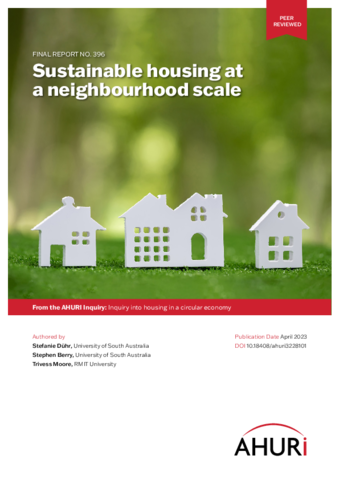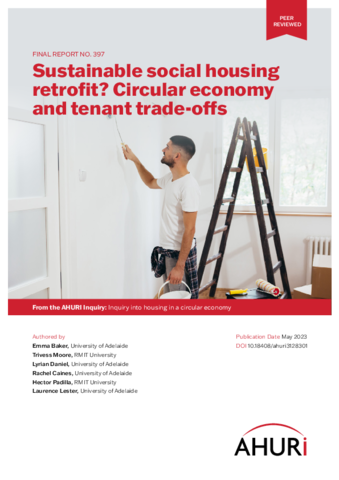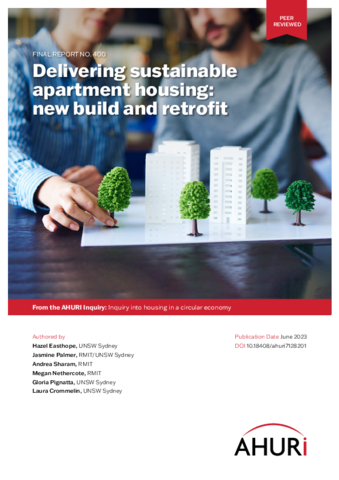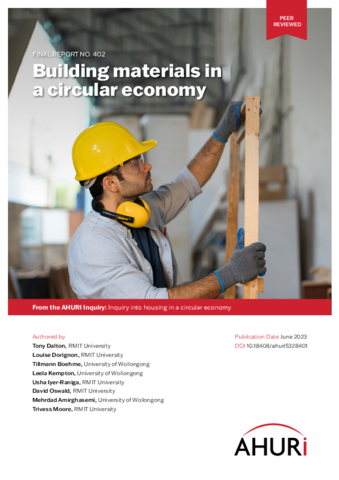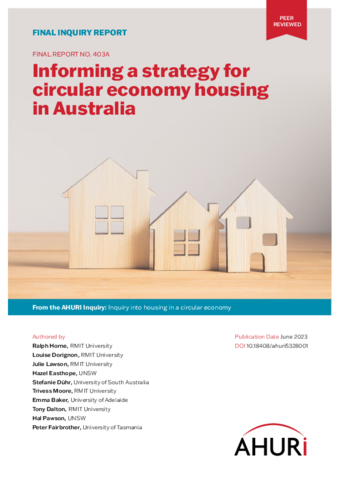Final AHURI Inquiry report
This final Inquiry report informs a strategy to facilitate circular economy housing: from construction, through operation to demolition. It draws on four coordinated research projects.
The gravity and urgency of the climate emergency and the housing affordability crisis together warrant a significant, coordinated national effort to recalibrate the housing industry and ensure its sustainable future.
A comprehensive CE strategy will:
- lift sustainability as a priority
- shift market processes
- tilt incentives to attract the appropriate investment
- build capacities towards circular and sustainable outcomes.
An effective CE strategy must include a politically astute vision; robust legal footing; industry-relevant application; and be capable enforcement. Specialist in-depth investigation of Australian institutional settings, market processes and stakeholder capacities are now required to reflect and propose suitable instruments adapted to local conditions.
The research makes five high-level recommendations to inform a CE housing strategy, including providing a picture of what needs to change and four recommendations showing how change might occur.
Effective change requires measures that actively shift perceptions of value and priority-framing in decision-making to those that favour CE housing outcomes. Housing industry organisations cannot meet this challenge without purposeful public intervention and stakeholder cooperation.
Regulation is essential to shape housing markets to reinforce CE approaches, from the micro level of building materials to construction and ongoing maintenance, to the macro level involving precinct-level spatial planning. Alongside legislative reform, clear targets and performance standards need to be enforced by monitoring, as well as being made accountable using reporting systems that sustain improving practice. These include energy efficiency and zero-waste policies; better regulations on material flows; upscaling technological improvements; and CE conditions in contractual arrangements.


